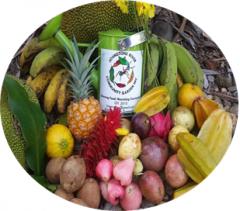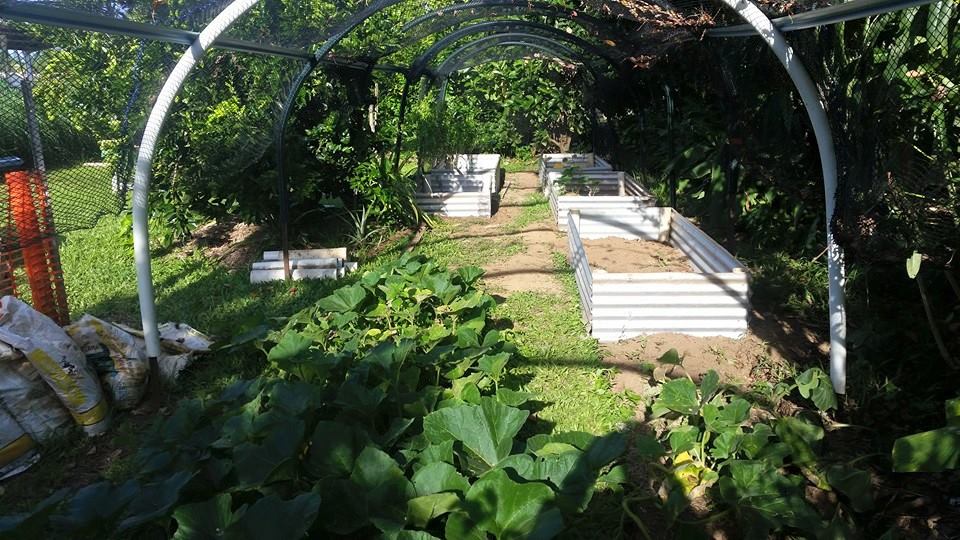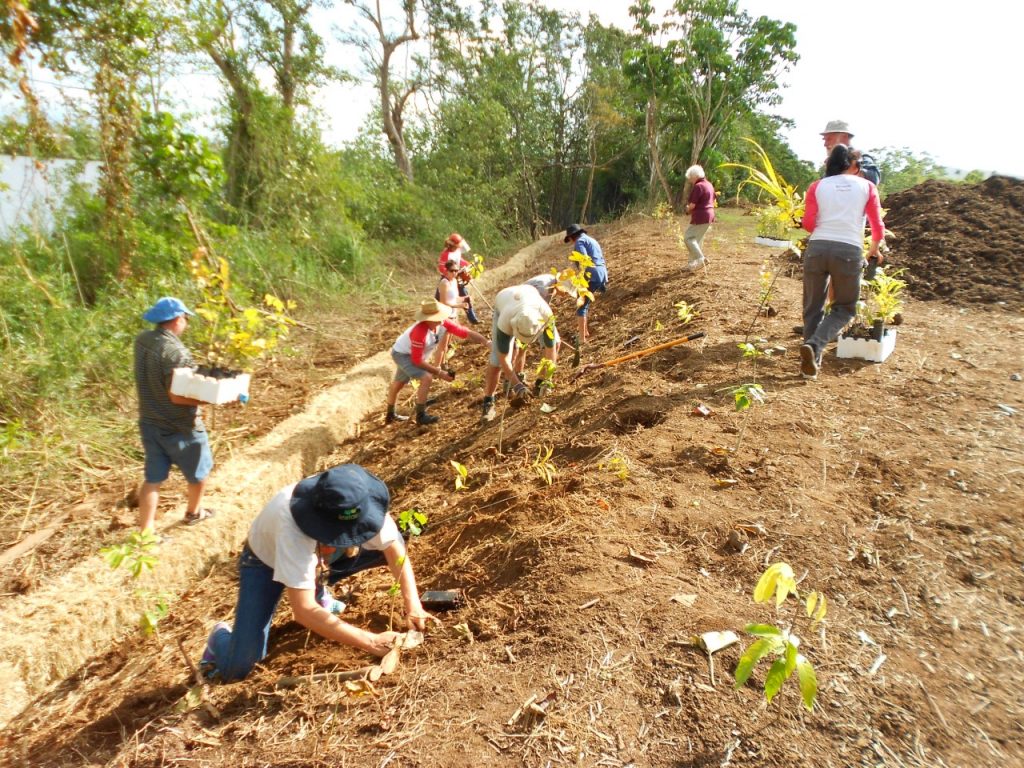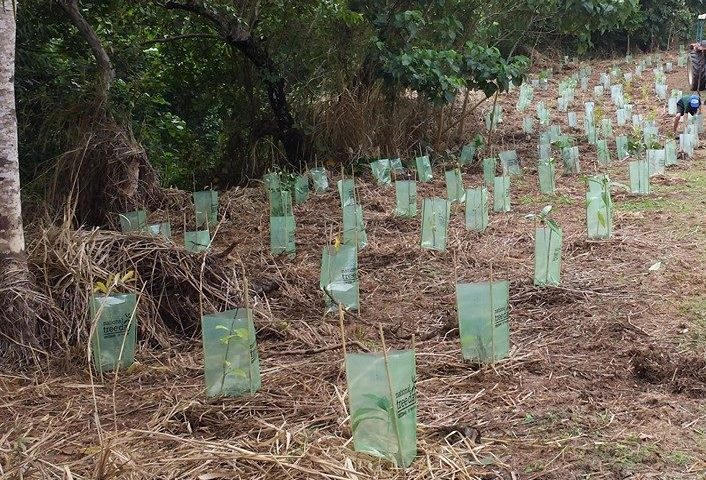An Introduction from Gardening Australia’s Costa
Situated in the heart of Innisfail, Johnstone River Community Gardens is 2.5 acres of beautiful leafy surrounds, abundant with birds, butterflies, lizards, and other native critters. Perfect for a relaxing stroll, bringing the kids for a play, yarning with friends, or walking the dog (leashed please!).
Our Mission – Growing Food, Nourishing Community
Within this tropical oasis, Garden-Members gather every week to fulfil a shared vision of Growing Food, Nourishing Community. We achieve this by sharing our knowledge and passion for all things gardening and sustainability, and striving together to grow and enjoy fresh fruits, vegetables, herbs, and flowers.
Our Philosophy – The Five Tenets of Sustainability
The Gardens are guided by ‘Five Tenets of Sustainability’. These tenets were decided upon by Garden-Members to ensure that everything we do will continue to support the future growth and sustainability of the Gardens, while enriching the wider Innisfail and Cassowary Coast community. To learn more about our ‘Five Tenets’, click on the titles below.
Tenet One – RecyclingIn a world drowning in rubbish, the Gardens have a responsibility to ensure that everything we use and consume is properly disposed of once it reaches the end of its life-cycle. This means incorporating all aspects of recycling into the operation of the Gardens, including:
- Repairing, re-using, and re-purposing items that have broken, worn-down, or originally had another use, and would usually end-up in landfill – such as pallets for DIY furniture, and cardboard for mulching.
- Using compost and worm-farms as nature’s recyclers to divert food-scraps and organic-materials from landfill.
- Recycling eligible cans and bottles through the ‘Containers for Change’ scheme, as well as soft-plastics through the Coles and Woolies ‘RedCycle’ program, thus diverting even more rubbish from landfill.
- Participating in and promoting annual ‘Clean-Up Australia Day’ and ‘The Great Northern Clean-Up’ with local schools, and the Cassowary Coast Regional Council.
- Advocating for more available, accessible, and advertised recycling-services in the Cassowary Coast Region.
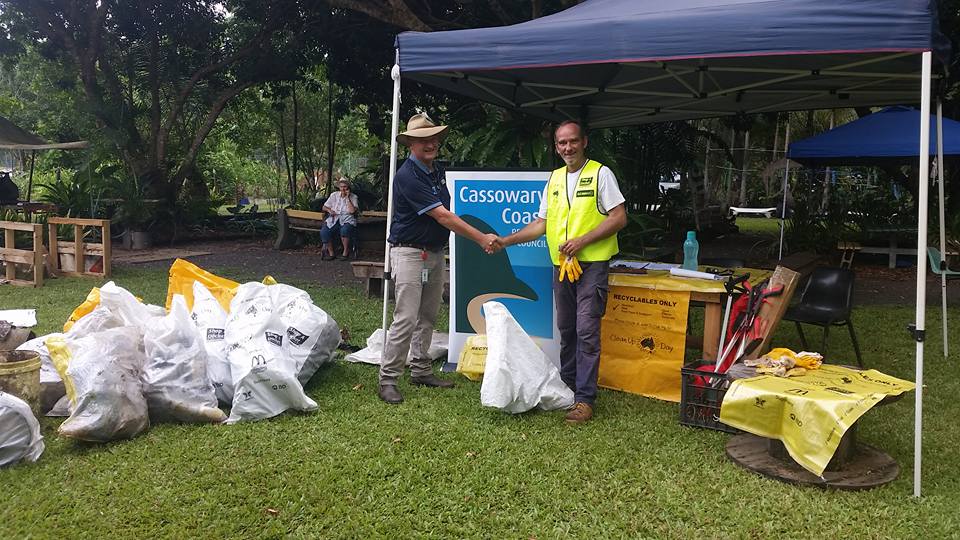
The Garden believes in doing its’ part to mitigate the effects of climate-change, through working towards and maintaining low carbon emissions. There are lots of ways to do this including:
- Recycling: From making food and clothes, to tools and home-wares, the process of manufacturing anything creates carbon-emissions – especially if it’s being made from scratch with brand-new materials. However, making items from recycled-materials drastically reduces the energy used and carbon-emissions associated with that product. By recycling responsibly, the Gardens reduces its’ carbon-emissions drastically.
- Composting and Worm-Farms: Did you know that when you send your fruit and veggies scraps to landfill this makes greenhouse-gases? Because there’s not enough oxygen or micro-organisms in landfill, the scraps rot and create methane – a greenhouse-gas that is 30-times more powerful than carbon-dioxide. However, when food-scraps are composted in the proper environment, methane is not released. By composting our food-scraps, and providing a place for community-members to do the same, the Gardens lower its carbon-emissions, and makes healthy, fertile soil. To learn more, click here.
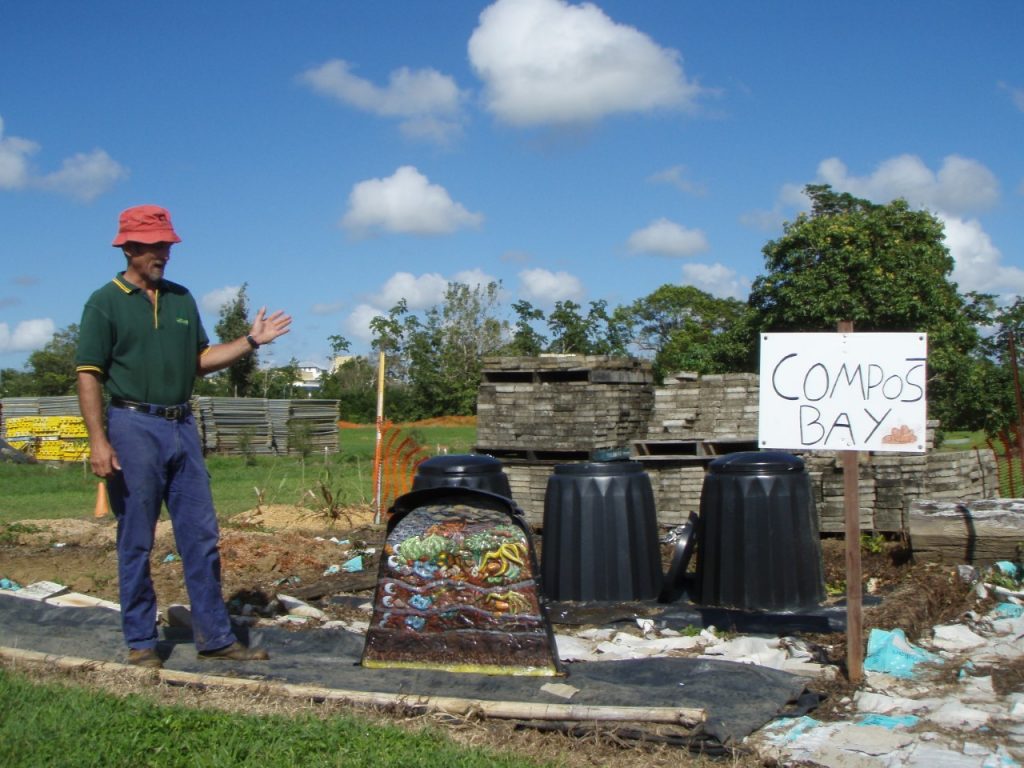
Food-miles are the amount of distance that food needs to travel from where it’s originally produced before it ends-up on your plate, and how many carbon-emissions were created in the process. Simply put, the closer your food is grown and processed to you, the lower the food-miles and carbon-emissions!
By promoting and creating a space for people to grow fresh fruit and veggies close to home, the Gardens supports individuals in lowering their food-miles, and subsequent carbon-emissions. Additionally, because food travels less distance and time from where it’s originally produced, your fruit and veggies will be fresher and packed with more nutrients, making for a healthier meal and a healthier you.
Carbon-sequestration is the process of taking carbon-dioxide from the atmosphere, and storing it somewhere else to prevent it acting as a greenhouse-gas. At the Gardens, we achieve this by planting permanent native trees throughout the property, which naturally absorb carbon, and store it for the life of the tree. We’ll also use any excuse to promote tree-planting to the wider community, and have participated in Arbor Day, National Tree Day, and Plant A Tree Day!
Since the very beginning of the Gardens when there was nothing but a bare field of guinea-grass, we have planted hundreds of trees, which have exponentially increased the carbon-sequestration capacity of the Gardens. Furthermore, by creating and burying compost and organic-matter into soil, the Garden improves the quality of soil, and its ability to absorb carbon from the atmosphere.
Every community garden is only as healthy, vibrant, resilient, and productive as the community in which it’s embedded. As such, it’s important for the Garden to work with and give back to its community. This includes providing a space for people to gather, play, learn, and grow through Working Bees, Community Picnics, educational workshops, and more.
The Gardens also donate excess fruit and veggies to other charities and organisations, such as the local Meals on Wheels, soup-kitchen, and the Community Pantry. To learn more, click here and here.
To learn more about the Johnstone River Community Gardens and how you can become involved, explore our website, contact us via phone or email, or visit the Gardens in-person.
